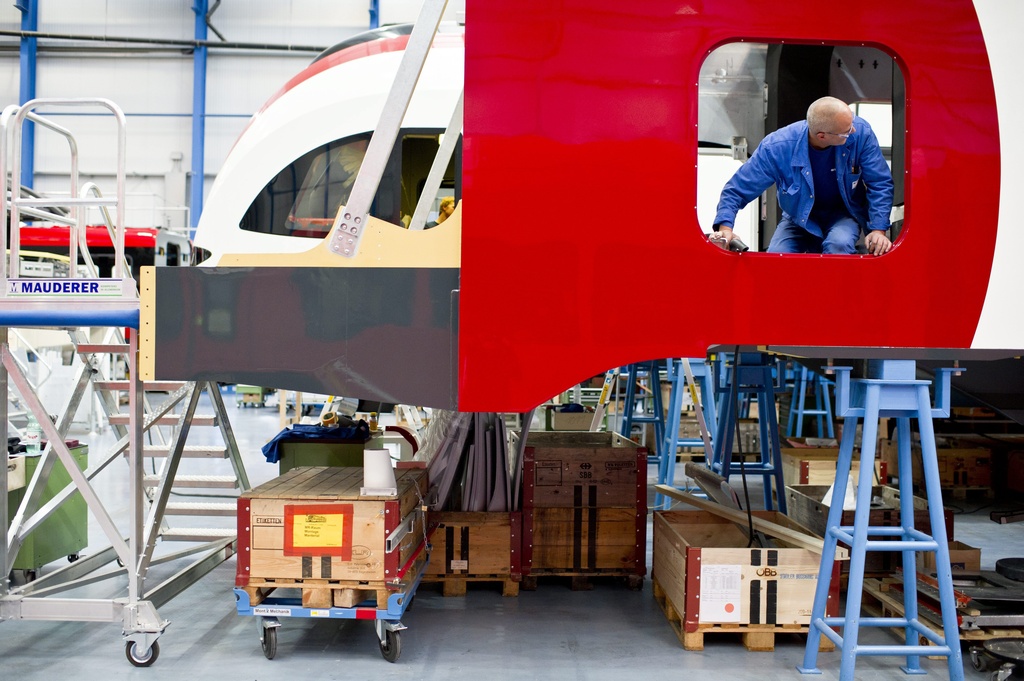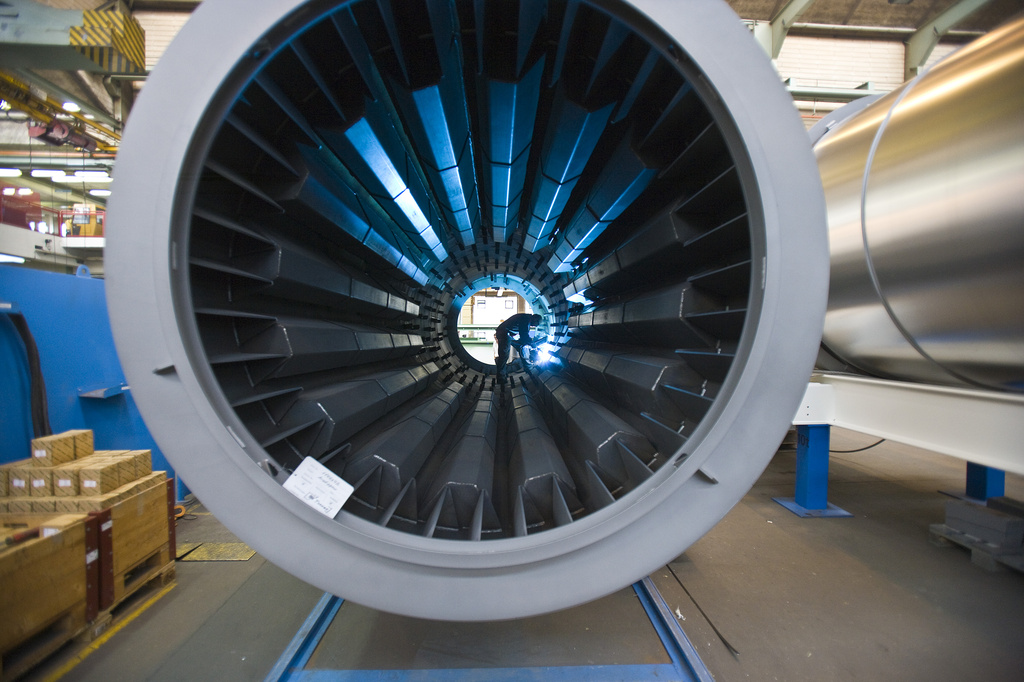Strong franc may cause longer work hours

If the eurozone crisis drags on firms’ tactics to cope with a strong Swiss franc like longer work hours or lower pay may become more common, say experts.
Swiss firms are searching for creative solutions to deal with a strong franc which has gained 25 per cent in value against the euro and the dollar over the past four years.
Lonza, the Basel-based chemical and biotechnology company, which on Monday agreed to buy Arch Chemicals in the United States for $1.2 billion (SFr1 billion), hit the headlines a week ago when it announced a decision, reached jointly with unions, to extend work hours due to pressures from the strong franc.
The working week for the 3,000 staff at its Visp plant will be increased from 41 to 42.5 hours for 18 months.
According to Stefan Borgas, Lonza’s chief executive, the firm has lost 20 per cent of sales in the past 12 months through currency factors and competitiveness has suffered dramatically.
Swiss economist Beat Kappeler welcomed the fact that unions and employers had managed to hammer out a deal, which he said “bodes well for the future”.
He told swissinfo.ch that longer work hour agreements like that of Lonza, “may become an increasingly common feature” in Switzerland if the eurozone crisis continues.
“As the EU is Switzerland’s biggest trading partner I can also foresee quite significant pressure on nominal salaries,” said Kappeler.
Collective bargaining agreements only exist in 40 per cent of Swiss firms, so there was likely to be plenty of “individual flexibility” over working arrangements, he added, especially in the service sector.
No miracles
In an article in the NZZ am Sonntag newspaper, Valentin Vogt, president of the Swiss Employers’ Union, said there was no “miracle solution” to deal with the strong franc.
He advised struggling firms to extend work hours or reduce salaries as two possible “emergency measures”.
“For employees it’s better to work more for a short time rather than to lose your job,” he told the Sunday paper.
But unions are less enthusiastic. Jean-Christophe Schwab, central secretary with the Swiss Federation of Trade Unions, told Swiss national radio that 10,000 jobs could be lost due to the overvalued franc.
“The government is doing absolutely nothing to counter the strong franc, while jobs are being threatened, people’s purchasing power is being eroded and more and more companies are following Lonza’s example,” warned Schwab, who described the lowering of salaries and longer work hours as “illegal measures”.
Kurt Regotz, president of the inter-professional union Syna, which helped negotiate the accord, said Lonza staff in Visp “were not very enthusiastic about the deal”.
But he said the union was closely following the movement of the Swiss franc and if it dropped in value it had the right to change or stop the accord.
In the event the Swiss franc continued to gain in value, Regotz felt salaries were unlikely to be next on the chopping block.
“The issue is too hot and the negative impact would be too strong,” he told swissinfo.ch.
Rudolf Minsch, chief economist with the Swiss Business Federation (economiesuisse), insisted that these kind of emergency business measures were “not a general phenomenon”.
“But some firms are taking into account all possible measures” to help survive in the long run, he noted.
Struggling policymakers
Swiss policymakers have been struggling to deal with a strong franc. Swiss Economics Minister Johann Schneider Ammann describes the strong franc as an “enormous challenge” and in the latest edition of the Sonntag newspaper he admitted the government had “no magic weapon” to deal with it.
In a separate interview in the same paper Swiss National Bank Chairman Philipp Hildebrand said there was currently no reason to spring into action to try to counter the franc’s rise as price stability was not threatened. But he said he was watching developments with great concern especially the effects on the economy as a whole.
Experts agree that the authorities are left with few tricks up their sleeve as the economy loses momentum.
“What I fear is that neither Schneider Ammann, nor the Swiss National Bank, really know what the solution is,” said Regotz.
Minsch agreed: “There is close to no possibility to intervene without causing serious harm to the economy in the long run. The economy has to fight the problem within its competences, minimize costs and stay competitive on world markets.”
The Swiss franc is a so-called “safe haven” currency, which means that investors and speculators buy it when other currencies, including the euro and the US dollar, are under pressure.
The Swiss National Bank has emphasised that it does not pursue an exchange rate target, but consistently bases its monetary policy on its legal mandate.
This mandate stipulates that “the SNB is required to ensure price stability, while taking due account of economic developments”.
Starting in March 2009 the SNB intervened in currency markets. But after pumping in 15 per cent of GDP in May 2010 to little effect as the Swiss franc surged during the first round of the Greek debt crisis, it dropped them in June 2010.
These forays led it to a loss of SFr21 billion last year, its biggest ever, and Chairman Philipp Hildebrand has faced calls to resign.
In the last 20 years Switzerland has become a major exporting country, according to a study by the Swiss bank Credit Suisse published in May 2011.
Exports of goods and services accounted for only one third of gross domestic product in 1990; by last year this had risen to 57%.
The reason for this rapid increase is globalisation.
In comparison with many other countries, the Swiss export industry emerged relatively unscathed from the 2008-2009 international economic crisis, and recovered more quickly.
One reason for this is the fact that the pharmaceuticals industry, which is relatively stable, accounts for almost one third of exports, the report says.

In compliance with the JTI standards
More: SWI swissinfo.ch certified by the Journalism Trust Initiative






You can find an overview of ongoing debates with our journalists here. Please join us!
If you want to start a conversation about a topic raised in this article or want to report factual errors, email us at english@swissinfo.ch.